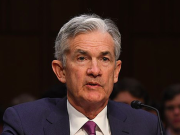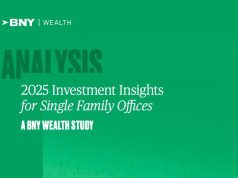Mercer: White Paper on Optimizing Portfolio in Private Markets for LPs in 2021
22th January 2021 | Hong Kong
Mercer, the world’s largest outsourced asset manager with $287 billion assets, has released a White Paper on optimizing portfolio in private markets for LPs (Limited Partners).
The white paper is titled: Optimizing your Portfolio – Private Market Top Considerations for 2021.
” Top Considerations in Private Markets in 2021 for LPs “
Mercer: Optimizing Your Portfolio – Private Market Top Considerations for 2021
The white paper outline issues where LPs can optimize their portfolios:
- United States (US) Private Equity & Venture Capital Markets: Legal advice to GPs on terms & conditions, could create misalignment of interest with LPs
- European Private Markets: COVID-19 has compounded the uncertainty already created by Brexit
- Asian Private Equity Markets: Effect of pandemic, political tension between US & China, and attractive investment opportunities in China
- Natural Resources: Reasons behind challenges and the opportunities in the sector
- Infrastructure: Recent growth, attractive performance and challenges with market changes
- Private Debt: Changes in private debt since 2008 Global Financial Crisis (GFC) and COVID-19
- Real Estate: Current market conditions in North America, Europe, APAC and opportunities
View the summary below
View Mercer White Paper: Mercer – Optimizing Your Portfolio
GPs (General Partners) are private equity fund partners or investment funds while LPs (Limited Partners) are investors. GPs are responsible for managing the funds while LPs are investors into the funds. In legal or business terms, General Partnership refers to partners contributing to day-to-day management of the business and authority to make business decisions. Limited Partnership is often referred to as “silent partner” that typically invest the funds in the business.
Raelan Lambert, Global Head of Alternatives, Mercer:
“We are seeing that, though investors have been tested this year, the experiences of previous crises have made them more resilient. There were unorthodox challenges such as not being able to vet new managers in person, but clients continued to put capital to work, especially with existing investment manager relationships across all private market segments.
In 2021, investors should consider stretching their risk appetites and consider their allocation to real estate. Although the pandemic will continue to challenge the property market, 2021 is likely to be an opportune time for entering the asset class with a medium- to longer-term investment horizon. Initially, investors should prioritize allocations to the largest, most-liquid markets, where price discovery is furthest along.”
Richard Tan, Portfolio Specialist for Asia, Mercer:
“Real estate valuations are slow to respond in this part of the world, but once the recovery sets in, we are particularly interested in opportunities in China and Japan, where supply and demand dynamics remain favorable. Across the region, data center and logistics space is viewed as attractive, as the quick adoption of e-commerce during the pandemic has prompted a spike in demand.
The number of US-listed Chinese companies has also grown faster in the past four years, highlighting the importance of looking beyond political rhetoric and focusing on risk-adjusted return potential instead. We believe the structural resilience of the Chinese economy following COVID-19 continues to present an attractive investment opportunity.”
” To say that 2020 has been an unusual year would be an understatement. We’ve experienced a global pandemic, a new normal for work and school, Zoom enthusiasm (and fatigue), devastating wildfires in Australia and the Western US, political unrest in major US cities throughout summer, the worst day ever for the Dow Jones stock market on March 9 and a highly contentious US election season, the implications of which will likely reverberate for years. ” – Mercer
Private Market Top Considerations for 2021
1. US Private Equity & Venture Capital Markets

Legal advice to GPs on terms & conditions, could create misalignment of interest with LPs
Mercer reviews thousands of private market offerings and conduct due diligence on hundreds of GPs each year. In the report, Mercer noticed trends in terms are not favourable to LPs (Limited Partners). Upon addressing the issue with GPs (General Partners), many GPs are unaware of the current market terms and have been advised by their legal counsel the terms reflect the market standard. Together, Mercer and other LPs have succeeded in convincing GPs to adjust terms to a more friendly LP-direction.
Trends in key terms:
- Management fees of 2.5% on committed capital
- Preferred return rates below 8% and as low as 0%
- Escalating carried interest rates as high as 25% and 30% of investment profits
- Accelerated vesting schedules on carried interest, often much shorter than full fund lives
- Excessive organizational expense limits, in some cases exceeding US$5 million
“The more fund terms are tilted in favor of GPs, the worse the alignment of interests with LPs becomes”

2. European Private Markets / Private Equity
COVID-19 has compounded the uncertainty already created by Brexit
United Kingdom (UK) will be exiting European Union in 2021 and with COVID-19, had compounded the uncertainty. However, European private equity managers are still doing deals with EUR 316.3 billion of investments for the 1st 3 quarters of 2020, relatively unchanged from EUR 322.8 billion for the 1st 3 quarters of 2019. However, the number of deals is expected to decline significantly with only more than 2,500 deals reported by Q3 2020. In 2018 and 2019, more than 4,000 deals were completed yearly.
Prices have declined for European Private Equity , with the median EBITDA at 9.0x, compared to 11.6x in 2018. The market dislocation may also present opportunities for GP’s portfolio companies thought mergers and acquisitions, and LPs can select top-performing managers that can take advantage of these uncertainties.
European Private Equity Deals (€)
| 2018 | 2019 | 2020 | |
| Q1 | €109.3 billion | €98.1 billion | €117.5 billion |
| Q2 | €114.4 billion | €98.4 billion | €98 billion |
| Q3 | €120.1 billion | €126.3 billion | €100.8 billion |
| Q4 | €134 billion | €137.1 billion | Not available |
| Total | €477.8 billion | €459.9 billion | €316.3 billion |
Source: Mercer Whitepaper, from Pitchbook
3. Asian Private Equity

Effect of pandemic, political tension between US & China, and attractive investment opportunities in China
China’s private equity fundraising has declined in 2020. Recent escalations of US-China tension and accounting frauds to US-listed Chinese companies have also raised questions of future exits. There are about 220 US-listed with around $2.2 trillion market capitalisation, accounting for 10% to 15% of total market capitalisation of all 5,800 listed Chinese companies (Mercer, Source: Bloomberg). A pull effect have also been attracting Chinese companies to “go home.”
- Expansion of corporate-weighted voting rights in HKSE
- Launch of biotech index to allow pre-revenue biotech companies to be listed in Hong Kong
- Launch of the Shanghai Stock Exchange Science and Technology Innovation Board (the STAR Market)
(The STAR Market and the ChiNext board in Shenzhen have embraced a registration-based system for approving IPOs, reducing the perceived risk of a more opaque IPO approval process. Since its launch, the STAR Market has become a top-3 IPO market.)
Despite the US-China tension, investments into Chinese companies has been steady. Under the Trump 4-year administration, a total of 102 Chinese companies have raised $26 billion on NYSE / NASDAQ. Under the Obama 8-year administration, 105 Chinese companies raised $41 billion, which includes $25 billion from Alibaba listing (Mercer, Source: FT, Dealogic).
China may be the only major economy to have a 2% GDP growth in 2020, contributing to 32% of global GDP.
” A pull effect have also been attracting Chinese companies to go home “

4. Natural Resources
Investing in natural resources faces significant challenges in 2021, due to a decade of poor returns.
Energy investments have struggled for nearly a decade and most natural resources have performed poorly for many years. However, poor performance does not persist forever for any asset class, strategy or sector. Natural resources is an integral building block of all advanced societies.
There may be better days ahead for traditional energy investments as supply/demand dynamics improve. Little equity capital is being raised by private energy managers, resulting in less competition.
Natural Resources Poor Performance:
- Oil prices briefly collapsed further in April 2020, even trading below $0
- More than 50 oil & gas firms have filed for bankruptcy since oil prices crashed in March 2020
- Timber has been a steady but modest performer (Timberland Index, 2.6% annually for 5 years)
- Agriculture returns are heavily impacted by 2 things investment managers cannot control: weather and government policies
- Private mining managers have also suffered
“A decline is a great opportunity to pick up the bargains left behind by investors who are fleeing the storm in panic.” ~ Peter Lynch

5. Infrastructure
Recent growth, attractive performance and challenges with market changes
Infrastructure is the rockstar asset class among institutional investors. Fund-raising grew from $16.5 billion in 2009 to $97.5 billion in 2019. By 2020 Q3, despite COVID-19, $75 billion had been raised. Investor demand had been driven by need for diversification, yield, real returns and the emphasis on sustainable investing have attracted pension funds, insurance companies, sovereign wealth funds and endowments. Over the past decade, infrastructure had returned 12% p.a. with volatility of only 13.9% p.a. (MSCI World returned 10% p.a. with volatility of 15.1% p.a.).
However, there is a risk that some infrastructure managers are fundraising for commercial reasons rather than market opportunity. Investors will also be facing successful planning and transfer of ownership stakes as key individuals of the fund retire.
Investors / LPs should consider:
- What does the departure of key individuals mean for the business culture
- what does it mean for its ownership
” Just because managers can raise capital in the market doesn’t mean they should — unless capital can be deployed successfully “

6. Private Debt
Changes in private debt since 2008 Global Financial Crisis (GFC) and COVID-19
Managers that maintain standards of credit underwriting and portfolio construction will be more likely to outperform. Since the Global Financial Crisis (GFC) in 2008, private debts have increased from under $300 billion to $848 billion by Q1 2020. The yield for below $200 million loan size is around 8% to 11% while the yield for above $300 million loan size is around 5% to 7% (Mercer, Source: Preqin).
- Private debt is not subject to the same mark-to-market pressures and volatility (against tradeable credit markets)
- Default and recovery rates have been more favourable than either syndicated loans or high-yield bonds.
- Middle-market loans have been able to maintain stronger terms and lender protections
- Private debt raised after shock events tends to perform well
Landscape of Private Debt Strategies:

Mercer Private Debt Strategies:
- Core: 5% – 8% target returns
- Core +: 9% – 12% target returns
- Credit opportunities & value-add
” In private debt, you win by not losing capital “
7. Real Estate

Current market conditions in North America, Europe, APAC and opportunities
At the end of 2020, there was a split in investor interest in real estate with Real estate being attractive as it produces income streams, while further disruption in capital markets will provide opportunity to acquire assets cheaply, allowing for capital gains.
In 2021 with a more supportive macroeconomic growth backdrop, there will be a “middle ground” of both strategies (income stream, acquire assets cheaply for capital gains).
Over the past decades, institutions have become more sophisticated in building real estate allocations, while small and midsize investors have already addressed their underweight position. Real Estate is already the largest private market asset class for institutional investors, with MSCI estimating the market to be worth around $8.7 trillion.
With COVID-19, the correction is much less severe than the Global Financial Crisis in 2008. Opportunities by region:
- North America – Occupancy failed to 93.5%, with opportunities in life sciences, lab space, affordable housing and logistics.
- Europe – UK real estate is highly transparent, and thus volatile to economic conditions. Specialist funds (retail / travel) recorded -15% in 1H 2020. Long-lease funds with high grade tenants maintain positive returns. Germany is resilient and in rest of Europe, growth potential in intensive niche sectors that are maturing
- Asia-Pacific – Valuations are slow to respond, but key economies had contained the virus. In China & Japan, demand / supply remain favourable. In APAC, data centre and logistics space are attractive. In Australia, strong demand as a safe-haven and positive long-term allocation.
The recommendation for 2021 is to overweight real estate, with a medium to longer-term investment horizon. Real Estate as an asset class (in private markets) is the largest, most-liquid markets, where price discovery is furthest along.
This is the Mercer White Paper: Optimizing your Portfolio – Private Market Top Considerations for 2021.
View the full Mercer White Paper here: Mercer – Optimizing Your Portfolio
 Mercer
Mercer
Mercer delivers advice and technology-driven solutions that help organizations meet the health, wealth and career needs of a changing workforce. Mercer’s more than 25,000 employees are based in 44 countries and the firm operates in over 130 countries.
Mercer is a business of Marsh & McLennan Companies (NYSE: MMC), the world’s leading professional services firm in the areas of risk, strategy and people with 76,000 colleagues and annualized revenue approaching $17 billion. Through its market-leading businesses including Marsh, Guy Carpenter and Oliver Wyman, Marsh & McLennan helps clients navigate an increasingly dynamic and complex environment.
Sign Up / Register
Caproasia Users
- Manage $20 million to $3 billion of assets
- Invest $3 million to $300 million
- Advise institutions, billionaires, UHNWs & HNWs
Caproasia Platforms | 11,000 Investors & Advisors
- Caproasia.com
- Caproasia Access
- Caproasia Events
- The Financial Centre | Find Services
- Membership
- Family Office Circle
- Professional Investor Circle
- Investor Relations Network
Monthly Roundtable & Networking
Family Office Programs
The 2025 Investment Day
- March - Hong Kong
- March - Singapore
- July - Hong Kong
- July - Singapore
- Sept- Hong Kong
- Sept - Singapore
- Oct- Hong Kong
- Nov - Singapore
- Visit: The Investment Day | Register: Click here
Caproasia Summits
- The Institutional Investor Summit
- The Investment / Alternatives Summit
- The Private Wealth Summit
- The Family Office Summit
- The CEO & Entrepreneur Summit
- The Capital Markets Summit
- The ESG / Sustainable Investment Summit



































